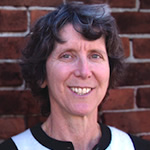An occupational requirement of editors is to boil down complex or expansive concepts into catchy titles that are five words or less. I tend to default to action words ending in “ing” and unconsciously employ the same handful over and over. In this issue, “growing” and “building” were used multiple times. Reflecting on why, I realized these words are true descriptors of today’s organics recycling industry. We’ve moved from words such as evaluating, assessing, testing and exploring to implementing, expanding, growing and building. Said another way, “doing it” and “doing more of it.”
Back in the office after a very successful 26th Annual BioCycle West Coast Conference, colleagues and friends were asking about highlights from the four days of workshops, sessions, trade show and tours. My response: “There is a real sense of momentum.” Participants were attending because they are doing it or about to — and doing more of it.
And opening plenary speakers, several not directly involved in organics recycling, clearly and firmly recognized the critical roles to be played by the “BioCycle Community” (their phrase), such as enhancing ecosystem services and developing projects that help ensure future sustainability of cities and smaller communities. (These keynotes will be posted on www.biocycle.net (one by one on a weekly basis) beginning mid May.)
And then it hit me. The takeaway word from the BioCycle West Coast Conference wasn’t “momentum” — defined in Webster’s Dictionary as “force or speed of movement” — although there is plenty of that happening (e.g., increasing numbers of projects, technologies, etc). Instead, the takeaway word is “adoption.” Among the definitions of adoption in Webster’s that are relevant in this context: “to choose or take as one’s own” and “to take or receive into any kind of new relationship.” In other words, adopting it and adopting more of it. By the time leading thinkers in the fields of sustainability and ecosystem services get what the organics recycling industry is doing, and the benefits to be gained by implementing all the practices the BioCycle Community has nourished, we have no other choice than to accelerate the pace of adoption to be ready to meet the demand for our products and services.
But here’s the key: To accelerate adoption, we need those plenary speakers and other ambassadors of change not directly involved in the organics recycling industry to expose members of their communities to the connections. For example, David Batker of Earth Economics is working with the Government Accounting & Standards Board to create an asset sheet for watersheds. This enables monetization of benefits that organics recycling provides, such as amending soils with compost to capture storm water. Tom Osdoba of the Portland Sustainability Institute circulates in the world of municipal finance and infrastructure. He spoke about sources of capital for sustainable infrastructure projects and suggested the starting point is to map current cash flow, e.g., for expenditures on energy, to see where the money is spent now and determine how to redirect a percentage into sustainable alternatives.
Ultimately, it requires connecting to communities beyond ours to accelerate adoption of all facets of the organics recycling industry. We have spent many years and many dollars attempting to shift practices in the traditional waste industry. While headway is being made, it will only be due to demand from outside the waste community that will put composting, recycling, anaerobic digestion and all the related high-value by-products in the mainstream. The stress of water shortages and unhealthy soils is being felt worldwide. Landfills and waste combustion can’t step up to address those challenges. We can.
May 16, 2012 | General











